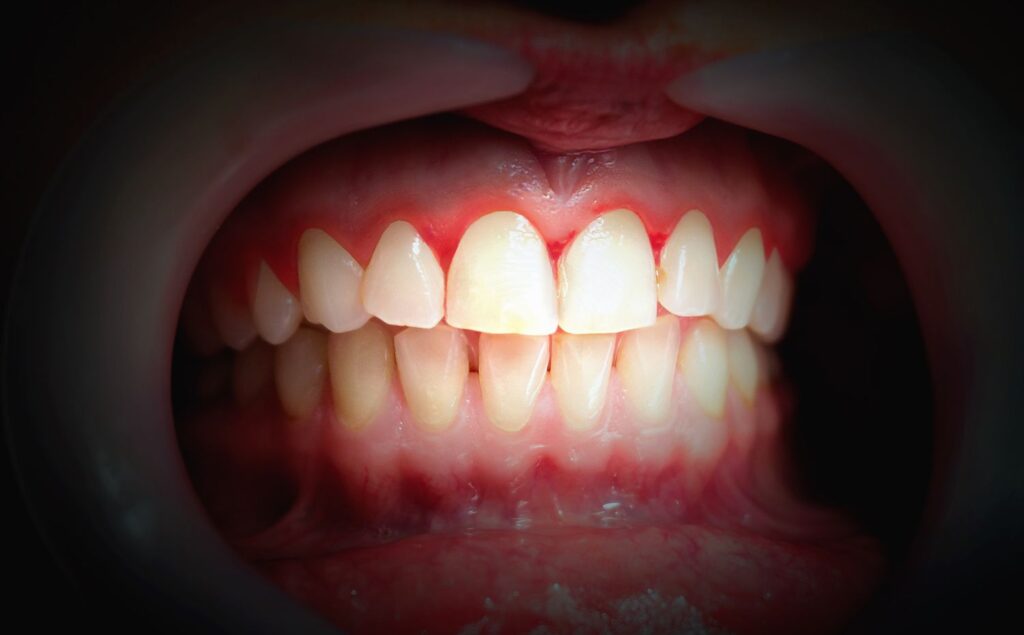Gum disease is an infection of the soft tissues of your gums. In its advanced stages, gum disease can wreak havoc on your gums and overall health. While the later stages can be detrimental, it is possible for you to miss the warning signs of gum disease.


What are the Symptoms?
One of the earliest warning signs is bleeding or swollen gums. However, it can be easy to dismiss these symptoms. For example, sometimes brushing too hard can cause bleeding gums. Additionally, getting some types of foods stuck between your teeth can cause your gums to swell. If you don’t consult your dentist when you see the symptoms, it can be too late when you finally seek treatment.
In its later stages, your gums will begin to recede, which can damage your mouth functionally and cosmetically. As your gums recede, your teeth have less stability. Additionally, you are more susceptible to tooth decay. Advanced gum disease can cause tooth loss and bone deterioration.
While gum disease can be detrimental, it is easily preventable. One of the best ways you can avoid gum disease is to have an excellent oral health care routine. This is because plaque buildup is one of the leading causes of gum disease.
Brush Your Teeth
Most dentists recommend that you brush your teeth at least twice a day or after meals. This is to remove plaque and leftover food particles. When plaque sits around your gum line, they become irritated. Therefore, you need to brush your teeth.
When you brush your teeth, you should use small circular motions. Circular motions are more effective at removing plaque than brushing straight across your teeth. Additionally, you shouldn’t brush your teeth too hard. This can damage your enamel and hurt your gums.
Floss Daily
Along with brushing, you must floss your teeth at least once a day. Brushing your teeth is essential and effective, but it is not enough to get rid of all the plaque on your teeth. Your toothbrush cannot reach between your teeth or under your gum line. Therefore, you have to floss your teeth.
Consider Mouthwash
Another way you can reduce your risk of developing gum disease is to add mouthwash to your routine. In the same way that flossing removes more plaque than brushing, mouthwash can remove even more plaque when used with brushing and flossing. After you brush and floss your teeth, try rinsing with a mouthwash. Mouthwash can reach every portion of your mouth, improving your oral health.
Regular Dental Visits
It is important to maintain regular dental appointments. When you go to your twice-yearly visits, you will receive a dental cleaning. Your dental hygienist will be able to remove any plaque or tartar that you missed during your daily routine. In addition, they will be able to see any dental problems that may develop. This will help prevent significant damage to your teeth and health.
